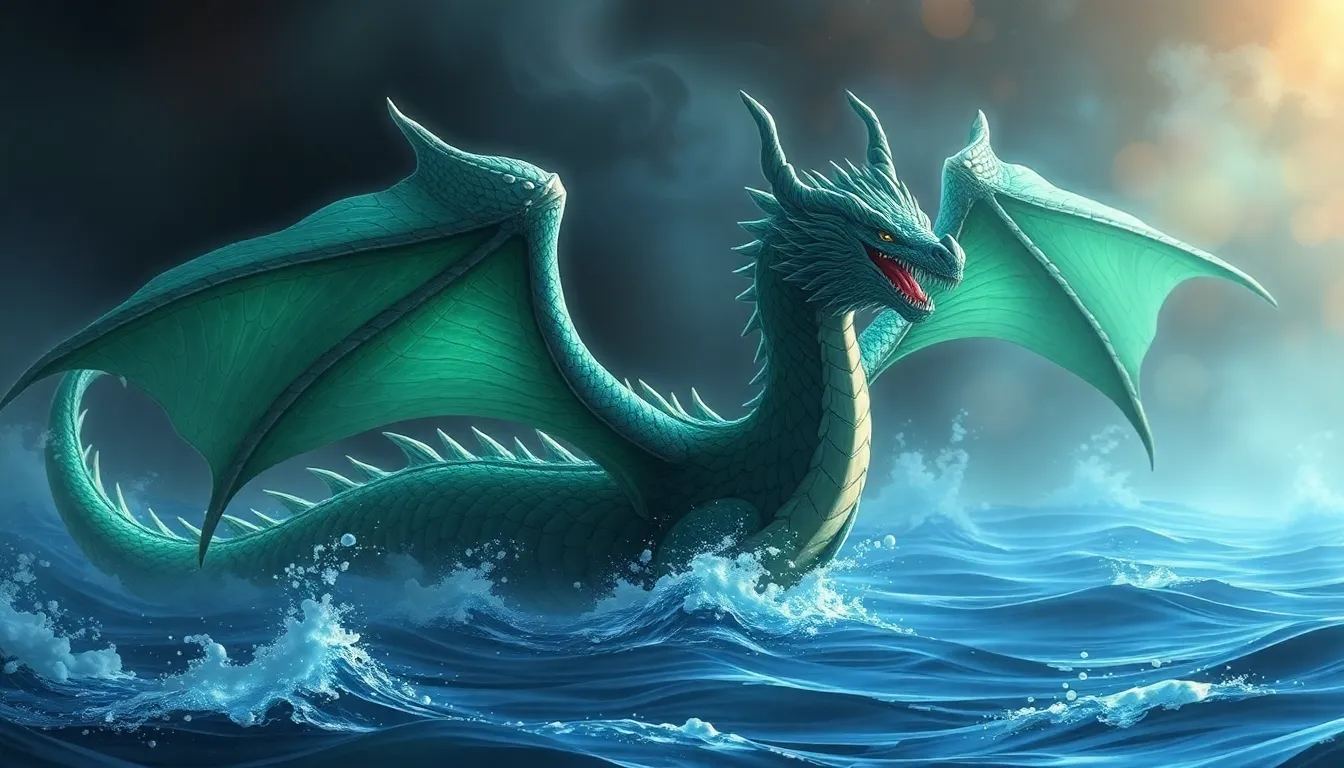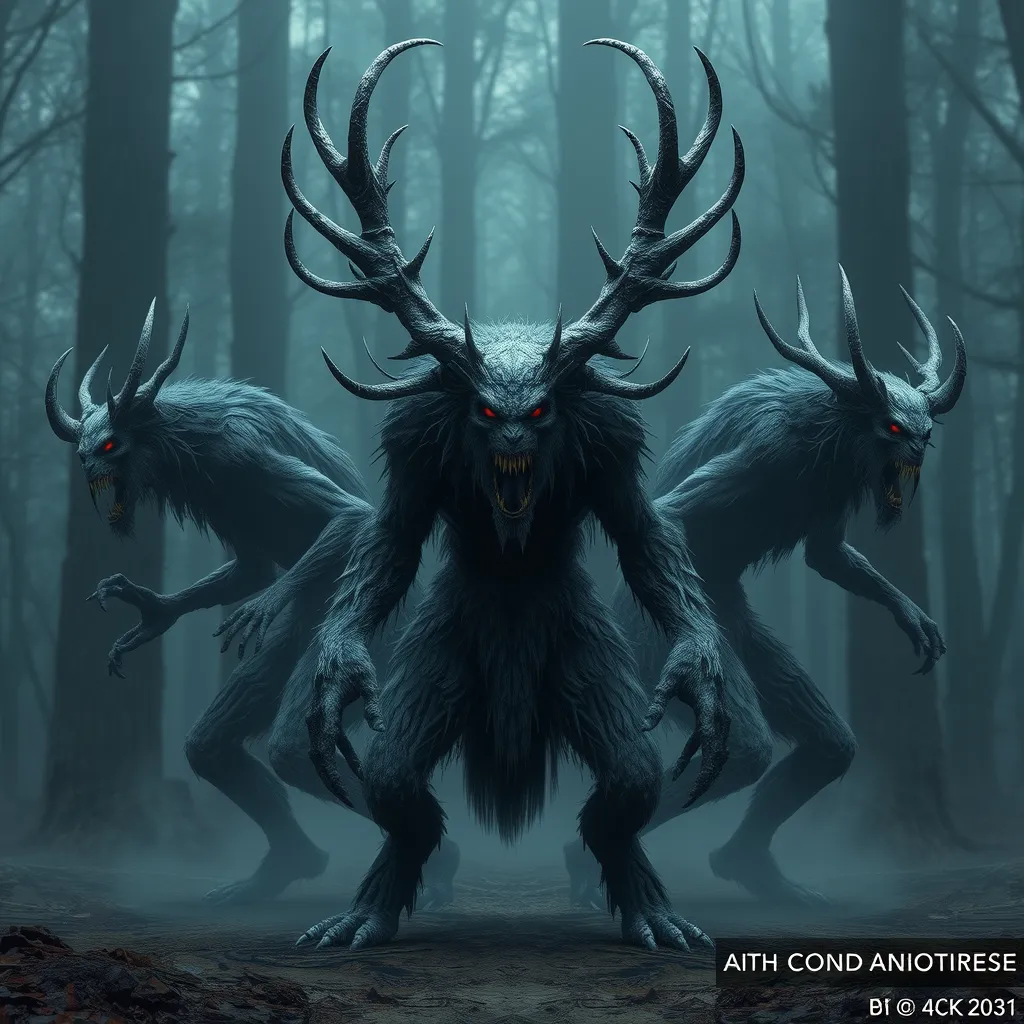The Dragon’s Domain: Examining the Myths of Water Dragons
I. Introduction to Water Dragons
Water dragons are fascinating mythical creatures that inhabit the stories and folklore of various cultures. Defined by their association with water, these dragons often display characteristics such as serpentine bodies, vibrant scales, and the ability to control water elements. Whether depicted as benevolent guardians of rivers and lakes or fearsome beasts of the deep, water dragons hold a significant place in mythology.
The significance of water dragons varies across cultures, where they often symbolize power, wisdom, and the mysteries of the natural world. This article aims to explore the myths and legends surrounding water dragons, delving into their historical origins, cultural significance, and modern interpretations.
II. Historical Origins of Water Dragon Myths
Water dragon myths can be traced back to ancient civilizations, where they were often depicted in art and literature. From the ancient Egyptians to the Mesopotamians, water dragons have been integrated into the narratives of various cultures.
A. Ancient civilizations and their depictions of water dragons
- In ancient Egypt, the water serpent Apep was seen as a symbol of chaos, often battling the sun god Ra.
- Mesopotamian mythology featured the dragon Tiamat, a primordial goddess associated with the salt sea.
- In Mesoamerican cultures, Quetzalcoatl, although primarily a feathered serpent, also embodies aspects of aquatic deities.
B. Influence of geography on water dragon lore
The geographical landscape of a culture often influenced its portrayal of water dragons. Civilizations near rivers and seas developed rich myths that associated water dragons with fertility and prosperity, while cultures situated in arid regions might emphasize the dangers posed by such creatures.
C. Comparison of myths across different cultures
While the specifics of water dragon myths vary, common themes emerge, such as the dual nature of these beings—both benevolent and malevolent. This comparative analysis reveals how different societies interpret the presence of water in their lives through the lens of dragon lore.
III. Water Dragons in Eastern Mythology
In Eastern mythology, particularly Chinese traditions, water dragons hold a revered status, symbolizing strength, power, and the natural forces of water.
A. Chinese water dragons and their symbolism
Chinese water dragons, often referred to as Long, are seen as auspicious creatures. They are believed to control rain and water bodies, which are crucial for agriculture and sustaining life.
B. Role in folklore and traditional stories
Water dragons feature prominently in Chinese folklore, often appearing as protectors of the natural world. They are celebrated in various stories where they help humans overcome obstacles or bring about bountiful harvests.
C. Celebrations and festivals associated with water dragons
Festivals such as the Dragon Boat Festival celebrate the cultural significance of water dragons, where dragon boat races commemorate the legendary figure Qu Yuan, highlighting the importance of water in Chinese culture.
IV. Water Dragons in Western Mythology
Western mythology portrays water dragons in a variety of ways, often influenced by literature and art throughout history.
A. European interpretations of water dragons
In Europe, water dragons are often depicted as guardians of treasures hidden in lakes and rivers. They are usually portrayed as fearsome creatures that require respect and caution from humans.
B. Influence of literature and art on the perception of water dragons
Literary works, such as those from the Arthurian legends, often feature water dragons or similar creatures, shaping public perception and cultural narratives about these mythical beings.
C. Famous tales and legends featuring water dragons
- The tale of the Loch Ness Monster has elements reminiscent of water dragon myths, suggesting a hidden, powerful creature residing in the depths.
- In Scandinavian folklore, the Lindworm is described as a dragon-like creature associated with water bodies.
V. The Symbolism of Water Dragons
Water dragons are rich in symbolism, representing various aspects of life and nature.
A. Representations of power and protection
In many cultures, water dragons symbolize protective forces, safeguarding not only water sources but also the communities that depend on them.
B. Associations with fertility and the natural world
Water is often tied to fertility and growth, and water dragons embody this connection, representing the nurturing aspects of nature.
C. Symbolism of transformation and rebirth
Water dragons are also seen as symbols of transformation, reflecting the fluidity of water and its ability to reshape landscapes and lives.
VI. Modern Interpretations and Popular Culture
In contemporary literature and media, the fascination with water dragons continues to thrive, often influenced by fantasy genres.
A. Water dragons in contemporary literature and media
Modern novels, films, and video games frequently feature water dragons as central characters, showcasing their mystical qualities and the allure of their aquatic domains.
B. Influence of fantasy genres on water dragon myths
The rise of fantasy literature has led to a resurgence of interest in mythical creatures, including water dragons, often reimagining them in new and exciting ways.
C. The resurgence of interest in water dragons in modern storytelling
As audiences seek deeper connections with ancient myths, the depiction of water dragons in popular culture reflects a blend of traditional lore and contemporary storytelling techniques.
VII. The Ecological Significance of Water Dragons
Water dragons also play a role in environmental mythology, symbolizing the health of aquatic ecosystems and serving as reminders of our connection to nature.
A. The role of water dragons in environmental mythology
In many cultures, water dragons are seen as protectors of water bodies, representing the delicate balance of aquatic life.
B. Symbolizing the health of aquatic ecosystems
The presence of water dragons in mythology often indicates a thriving ecosystem, where their well-being is tied to the health of the waters they inhabit.
C. Conservation messages linked to water dragon myths
Modern interpretations of water dragon myths serve as a call to action for environmental conservation, emphasizing the importance of preserving our water sources and the life they support.
VIII. Conclusion: The Enduring Legacy of Water Dragons
In conclusion, water dragons hold a unique place in mythology across various cultures, symbolizing power, fertility, and the mysteries of the natural world. Their stories continue to resonate today, reminding us of the significance of water and the creatures that inhabit it.
As we reflect on their enduring legacy, it becomes clear that water dragons are not just relics of the past but are relevant in today’s ecological conversations. Exploring water dragon lore invites us to consider our relationship with nature and the importance of safeguarding our aquatic environments.



